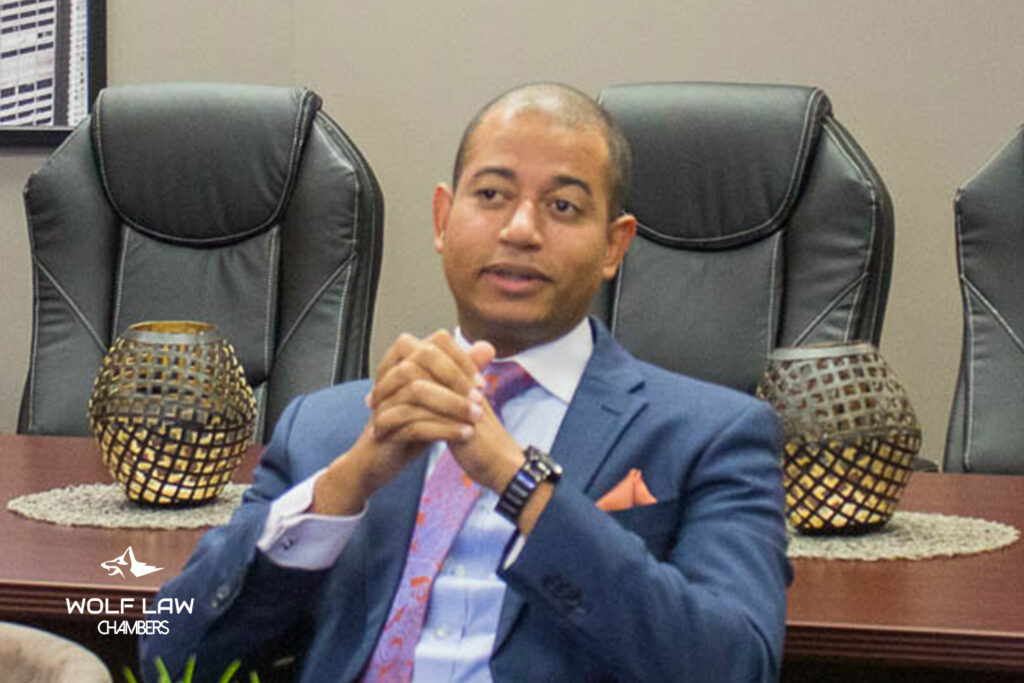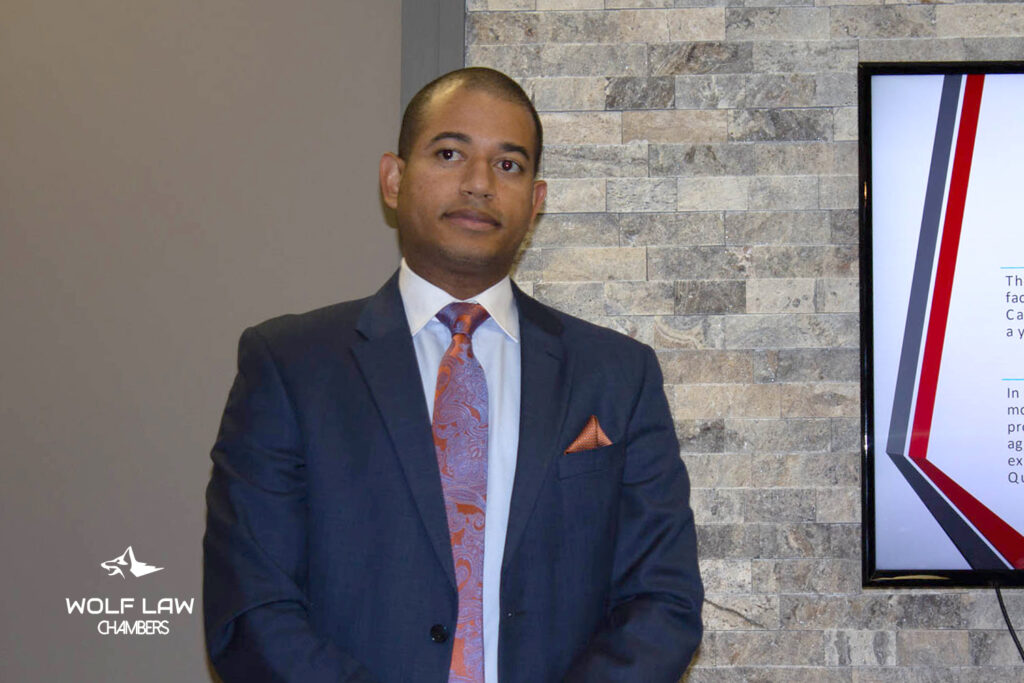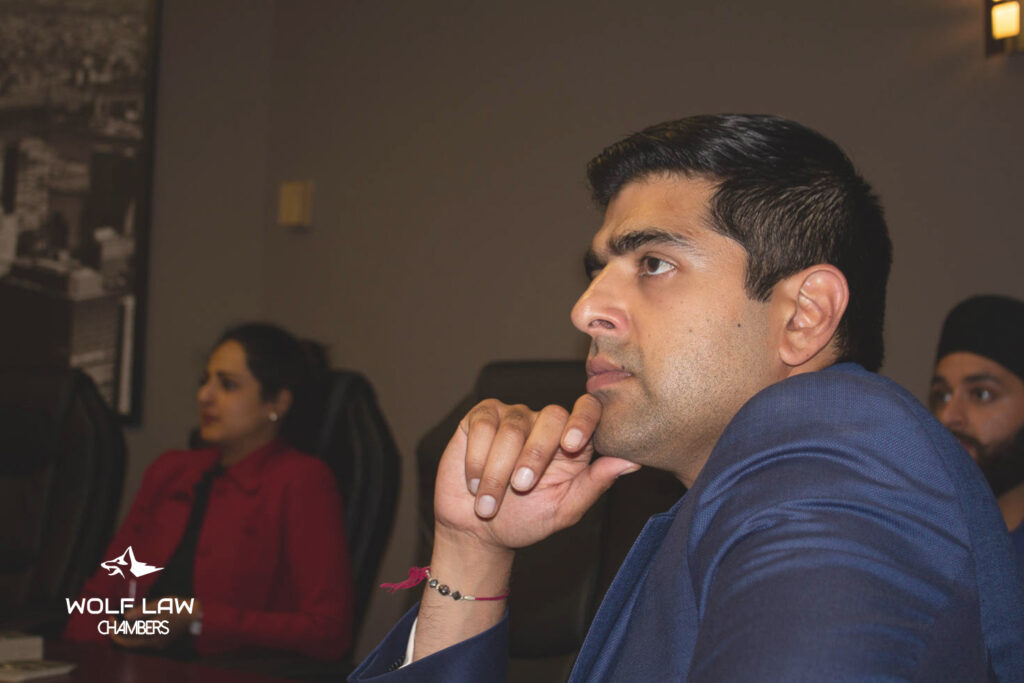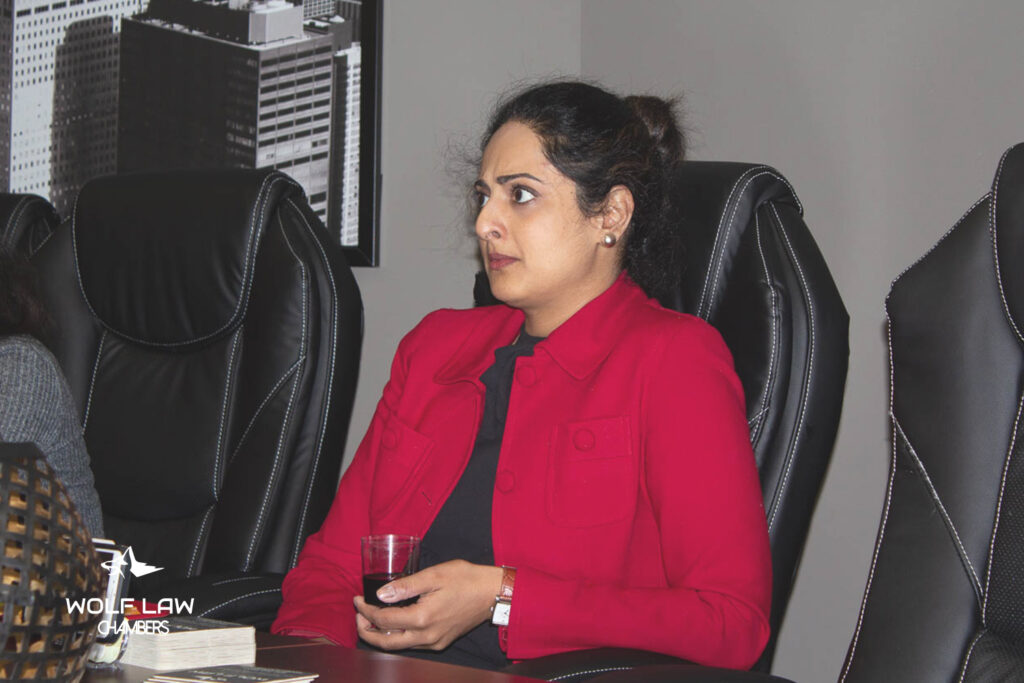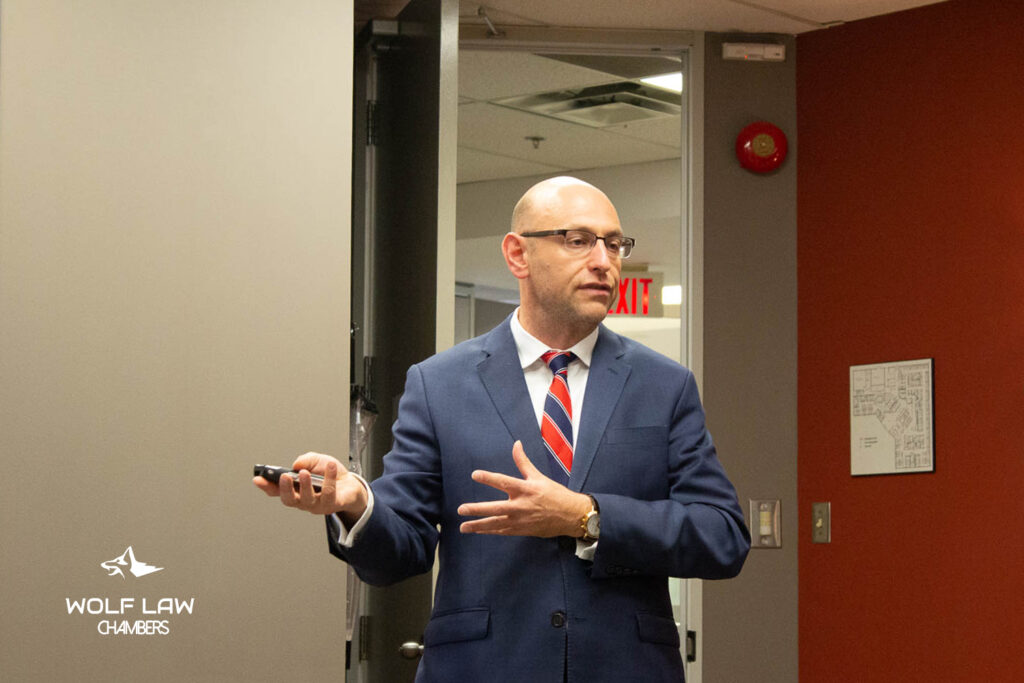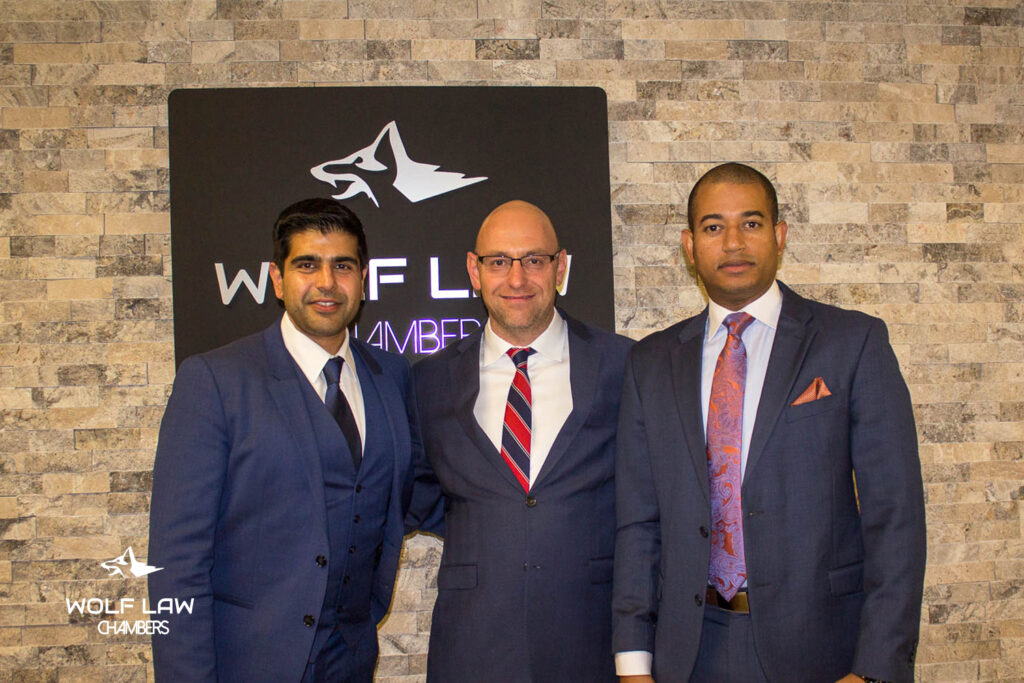Factors to Consider For Your Cross-Border Legal Practice
On Thursday September 19th, 2019 the Wolf Law Chambers community was delighted to have hosted an event attended by sole practitioners from very diverse areas of practice. Many of those in attendance possessed the ability to conduct their practice in foreign jurisdictions and obtain clients internationally. Although this can expand one’s outreach and client base, there are underlying issues that must be considered. Sole practitioners, Dezso Farkas and Gideon McMaster of Farkas Law and McMaster Law, respectively, co-hosted the evening and shared their expertise in professional responsibility for cross-border legal practice.

Some of the lawyers in attendance had been called to the bar in Trinidad & Tobago, India, and the United Kingdom, besides having their current practices established in Ontario. These professionals have to abide by professional conduct rules in both Ontario and abroad, which can be quite a challenge when matters intersect. In these scenarios it is vital to consider 5 areas of professional responsibility: general applicability of professional conduct rules, retainer agreements, marketing of your legal services, bill disputes or professional complaints, and trust requirements. Dezso and Gideon compared the Rules of Professional Conduct in Ontario and the Legal Professional Act of Trinidad & Tobago, which is Mr. McMaster’s home country. A comparative analysis of the 5 areas of responsibility raised immense awareness about the caution that legal professionals must proceed with. What may be applicable and legal in one jurisdiction can have the exact opposite implications in another. Legal professionals are obligated to comply with different sets of rules from multiple jurisdictions when matters cross international borders, so it is in their duty of care to remain well informed of such rules at all times.
1- Professional Conduct Rules
The Legal Professional Conduct Act of Trinidad & Tobago contains a Code of Ethics for Attorneys at Law and is contained in a schedule to the Act. There are two sections in the schedule: the first contains general guidelines while the second has specific prohibitions and mandated provisions. Meanwhile, the Rules of Professional Conduct in Ontario have seven chapters, each of which addresses a different area of consideration for one’s legal practice.
2- Retainers
In Trinidad & Tobago, a retainer is the establishment of a signed agreement between a lawyer and a client. In Ontario, a lawyer-client relationship may be established without formality. Under specified rules in Ontario, if you are consulted by a lawyer and provided with legal advice, a lawyer-client relationship exists.
3- Marketing of Legal Services
In Trinidad & Tobago, attorneys are not permitted to advertise and may only market their services within the confinements of the Legal Professional Conduct Act. Lawyers are encouraged to build their client base through hard work and reputability. In Ontario, a lawyer can market their services but is limited in the scope of doing so.
Article 4.2-1 of the Rules of Professional Conduct in Ontario states the following:
“A lawyer may market legal services only if the marketing
(a) is demonstrably true, accurate and verifiable;
(b) is neither misleading, confusing, or deceptive, nor likely to mislead, confuse or deceive; and
(c) is in the best interests of the public and is consistent with a high standard of professionalism [1].”
A few examples of marketing that may infringe upon this rule may be the suggestion of qualitative superiority over other lawyers, raising expectations through false perceptions, using testimonials that contain emotional appeals, etc.
4- Disputing Bills
In Trinidad & Tobago, a client may file a complaint to the Disciplinary Committee in the case of a dispute arising between them and the lawyer. Professional complaints are also filed with the Disciplinary Committee. In Ontario, clients are encouraged to talk to their lawyer/paralegal and if that does not settle the dispute, they can contact the Assessment office to have their bill reviewed. An Assessment Officer of the Ontario Superior Court of Justice will then review the lawyer’s bill. For professional complaints, the Complaints and Compliance department is the first point of contact, and if then proceeds to the Law Society, which can deal with a wide array of matters related to lawyer and paralegal professional conduct. If there is a need to recover lost money due to a legal professional’s dishonesty, one may apply to the Compensation Fund for further review.
Trust Requirements
In Trinidad & Tobago, the requirements for trust accounts are principle based and not entirely set in stone. The underlying agenda of such principles include honesty, punctuality, diligence, separation of personal and trust accounts, and ability to refund money owed to clients. On the contrary, Ontario is very strict in their approach to trust requirements.
There are strict guidelines on all of the following:
- Books and Records
- Opening a Trust Account
- Interest on the Trust Account
- Trust Account Signing Authority
- Trust Account Operation
- Reconciling a Trust Account
- Trust Deposits, Transfers, Withdrawals
- Closing a Trust Account
- Reporting Mixed Trust Accounts [1]
Overall, there are many factors that should be taken into consideration for one’s cross border legal practice and it is deemed necessary to remain in tune with rule of professional conduct for all jurisdictions that apply.
The following questions were raised by both Dezso and Gideon for those who are engaged in cross-border legal practices:
- Could there be lawyer/client relationship of some type in Ontario?
- Should it be defined or limited in writing?
- Which Rules of Civil Procedure are redundant between the two jurisdictions?
- Which rules conflict? (ex. different standards)
- Which is the higher standard? (ex. trust requirements)
- Through what means did the client find me?
- If a complaint arises, where should it be made?
- Should this be defined in an Ontario retainer agreement?
- Where will trust funds be deposited?
- Can trust funds be deposited somewhere else?
- Should a firm in the foreign jurisdiction be involved to act as party to the retainer agreement and receive the client’s trust funds?
- How should your relationship to that foreign firm be defined?
- Does any aspect of the matter involve Ontario law?
- What type of advice is being given and does it implicate Ontario law in any way?
In answering the above, one may assess whether or not they are complying with the rules of the respective jurisdictions.
Overall, Mr. Farkas and Mr. McMaster brilliantly raised awareness about practicing Ontario lawyers called to the bar in foreign jurisdictions. They provided those in attendance with real life scenarios that exhibited the need for understanding professional responsibility when practicing across borders.
Wolf Law Chambers, located at 90 Matheson Blvd West, Mississauga, ON L5R 3R3 is consistent and thorough in hosting events like this. We invite you to join us on October 10th, 2019 for our “Surviving the Audit” event.
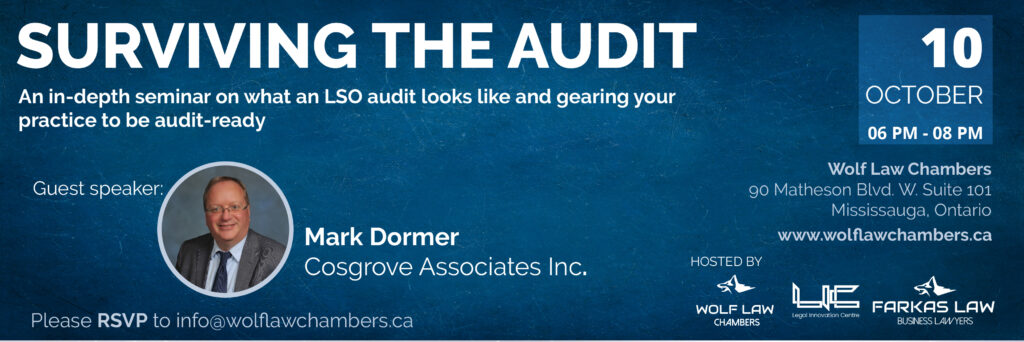
Please subscribe to our newsletter and tune in for updates on future events and articles.







